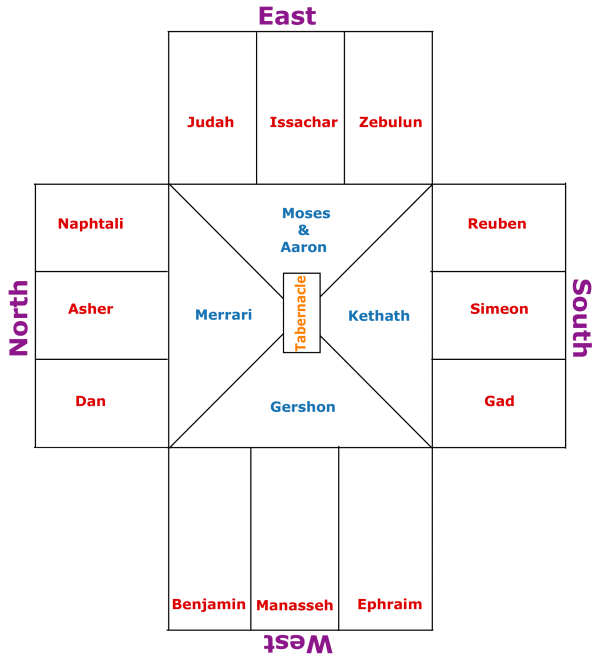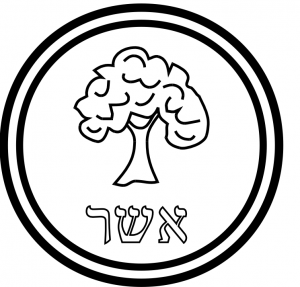
Asher
Asher was the eighth son of Jacob and the father of the tribe of Asher, one of the twelve tribes of Israel. His mother was Zilpah, Leah’s maidservant. Leah named him Asher, saying “Happy am I” (Genesis 30:13). Asher played a role in the plot to sell his brother Joseph into slavery. Asher and his four sons and daughter later settled in Egypt. Jacob blessed Asher on his deathbed, saying: “From Asher will come the richest food; he will provide the king’s delights” (Genesis 49:20)
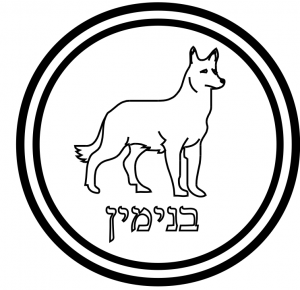
Benjamin
Benjamin was the son of Jacob and Rachel and father of the tribe of Benjamin, one of the twelve tribes of Israel. Originally named Ben-oni, or “son of my affliction” by his mother as she lay dying in labor, his name was later changed to Benjamin, meaning “son of my right hand” (Genesis 48:14). Next to Joseph, he was his favorite son. Benjamin the twelfth son of Jacob and born after Joseph was sold into slavery. After the family was invited to Egypt, Joseph sabotaged Benjamin’s sack by putting a silver cup in it and accusing the brothers of stealing. Joseph thought Benjamin would remain in Egypt but Judah offered to take his place, saying that his father would be devastated if Benjamin did not return. Jacob later blesses Benjamin while on his deathbed, calling Benjamin “a vicious wolf, devouring the prey in the morning, and dividing the spoil at night” (Genesis 49:27).
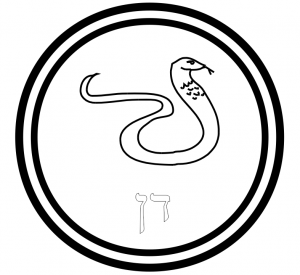
Dan
Son of Jacob and Bilhah (Leah’s maidservant) and father of the tribe of Dan and one of the twelve tribes of Israel. Dan was one of the brothers involved in the plot to sell his brother Joseph into slavery. Later, Dan’s father Jacob sent him to Egypt to buy corn during the severe famine in Canaan. Dan receives a blessing from Jacob that “Dan shall judge his people” (Genesis 49:16). Similarly, one explanation of the name Dan is that when Rachel was convinced that she was unable to have children, she cried “HaShem has judged me” (Genesis 30:5). The region of Dan in the Book of Judges is located in the far north of Canaan and referred to early in Genesis during Abraham’s chasing of Chedorlaomer (Genesis 14:14). The tribe of Dan also settled in the southern part of the country and since the tribal territory covered both northern and southern parts of the country the expression “from Dan to Beer-sheba” indicates the entire span of the Israelite land.
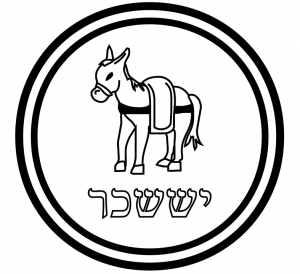
Issachar
Ninth son of Leah and father of Issachar, one of the twelve tribes of Israel. One interpretation of his name is “man of reward” (Hebrew: shcar). Issachar was the product of the mandrake incident (Genesis 30:9-18) and was involved in the plot to sell his brother Joseph into slavery. Issachar settled in Egypt after the famine in Canaan and had four sons: Tolah, Puvvah, Yov and Shimron. He receives a blessing from his father Jacob that he “bends his back to the load, working like a slave” (Genesis 49:14-15). The descendants of Issachar are men of learning according to Jewish tradition.
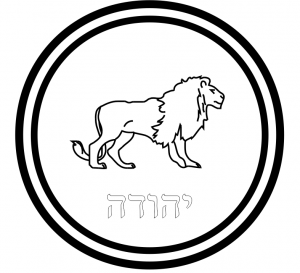
Judah
Fourth son of Jacob and father of the tribe of Judah, one of the twelve tribes of Israel. His name comes from the Hebrew word of gratitude. Leah gave birth to Judah and said “Now I will praise HaShem” (Genesis 30:35) It was his idea to sell his brother Joseph to a Midianite slave trader rather than leave him to die in the pit (Genesis 37:27). He later became the spokesman for his father Jacob and his brothers when they travelled to Egypt during the famine in Canaan. He marries Shua and has three sons: Er, Onan, and Shelah. Judah also has sons with Tamar their names were Perez and Zerach.
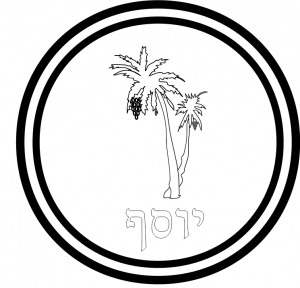
Joseph
Joseph was the 11th son of Jacob. He was born to Jacob’s favorite wife, Rachel, in Paddan-Aram after she had been barren for seven years. Joseph fathered two tribes of Israel: Ephraim and Manasseh, these later became independent tribes.
Ephraim was the brother of Manasseh, and the son of Joseph and Asenath, Pharoah’s daughter. Jacob adopted the two sons as part of the tribe of Simeon and Reuben. Ephraim received the blessing of the firstborn, although Manasseh was the eldest, because Jacob foresaw that Ephraim’s ancestors would be greater than his brother’s (Genesis 48:13-20).
Manasseh was the son of Joseph and Asnat (Pharoah’s daughter) and brother of Ephraim. Jacob adopts both Manasseh and his brother Ephraim as part of the tribe of Simeon and Reuben. Although Manasseh was technically the eldest son, he does not receive the greater blessing. Ephraim does, as Jacob foresaw that his descendants were more worthy of the blessing than Manasseh’s (Genesis 48:13-20).
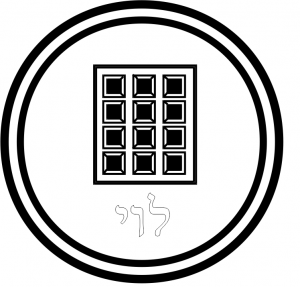
Levi
Third son of Jacob and Leah and father of the tribe of Levi, from whom the Levites are descended. The tribe of Levi is one of the twelve tribes of Israel. Since Leah had already given Jacob two sons, she said “Now my husband will be joined with me” (Genesis 30:34). The Levites were distinguished as servants to God because of their refusal to worship to Golden Calf (Exodus 32:26-29). Levi’s own three sons, Gerhson, Kahath and Merari, become Temple servants. After Levi’s sister Dinah was molested by Shechem, he and his brother Simeon destroyed the entire town. Levi was later involved in the plot to sell his brother Joseph into slavery.
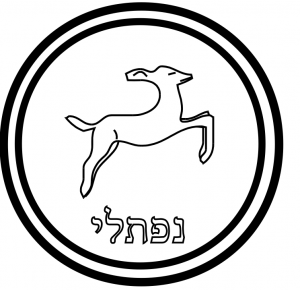
Naptali
Naptali was the son of Jacob and Rachel’s maidservant Bilhah and the father of the tribe of Naphtali, one of the twelve tribes of Israel. The tribe of Naphtali settled in northern Canaan and were described as brave soldiers in the Song of Deborah (Judges 5:18). Naphtali’s blessing from his father called him “a running deer” (Genesis 49:21). Naphtali was given his name because Rachel said “With great wrestlings have I wrestled my sister” (Genesis 30:8).
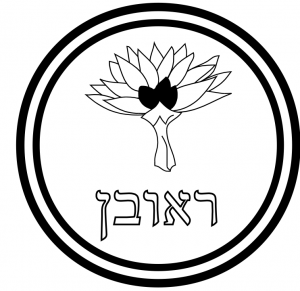
Reuben
Firstborn son of Jacob and Leah and father of the tribe of Reuben and one of the twelve tribes of Israel. His name comes from the Hebrew meaning: “Look, a son.” He appears in the story of the mandrakes as the one giving them to his mother (Genesis 30:14). Reuben has relations with Jacob’s concubine Bilhah, angering Jacob and probably contributing to the curse of Reuben on Jacob’s deathbed (Genesis 49:4). He succeeded in convincing his brothers not to kill Joseph but to trap him inside of a pit instead (Genesis 37:22). Later, when the family journeys to Egypt during the famine, he attempts to persuade his father that he should take responsibility for Benjamin while in Egypt (Genesis 42:37). The tribe of Reuben settled west of the Jordan River and agreed to join the other tribes in the war against the Philistines.
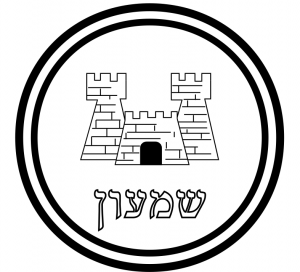
Simeon
Simeon was the second son of Jacob and Leah and father of the tribe of Simeon, one of the twelve tribes of Israel. The Hebrew meaning of his name means “HaShem has heard that I was unloved” (Genesis 29:33). He and his brother Levi destroyed the entire village of Shechem in retribution for the rape of their sister Dinah (Genesis 34). Simeon was a part of the plot to sell his brother Joseph into slavery. After the family was invited to Egypt during the famine in Canaan, he was appointed as the individual to stay behind as collateral for Benjamin so that his brothers would return from Canaan. The tribe of Simeon lived in the southernmost part of the Land of Israel.
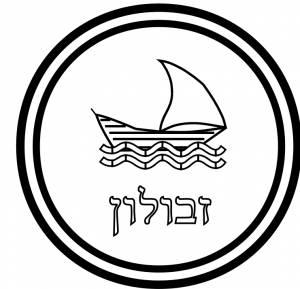
Zebulun
Tenth son of Jacob and sixth of Leah and father of the tribe of Zebulun, one of the twelve tribes of Israel. When he was born Leah said “HaShem has provided me with a good dowry” (Hebrew: zvad). He was part of the plot to sell Joseph into slavery, and later one of the group sent to Egypt to buy corn. He later lived in Egypt with his three sons Sered, Elon and Jahleel. Zebulun received the blessing from Jacob of: “Zebulun shall settle the seashores; he will be a harbour for ships; his border shall reach Sidon.” (Genesis 49:13). The tribe of Zebulun inhabited the northern land of Canaan. Both the tribes of Naphtali and Zebulun are mentioned as brave soldiers in the Song of Deborah during the battle against Sisera (Judges 5:18).
Around the Tabernacle and in order of their marches
Eastern Tribes
- Judah
- Issachar
- Zebulun
Southern Tribes
- Reuben
- Simeon
- Gad
Western Tribes
- Ephraim
- Manasseh
- Benjamin
Northern Tribes
- Dan
- Asher
- Naphtali
